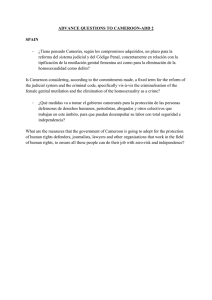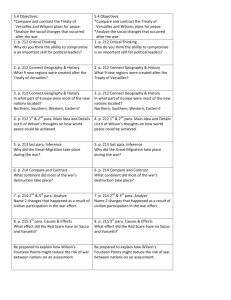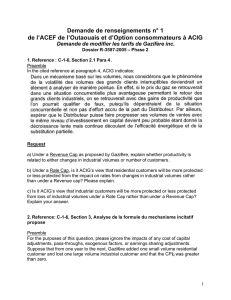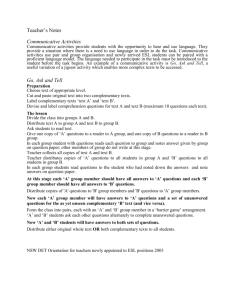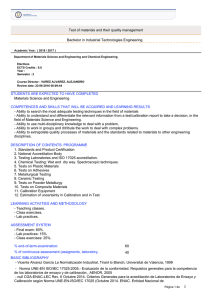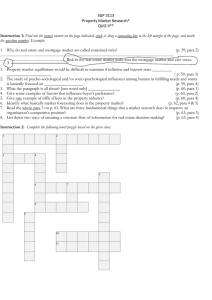Name Per Date Chapter I: “Of Our Spiritual Strivings” from The Souls
advertisement
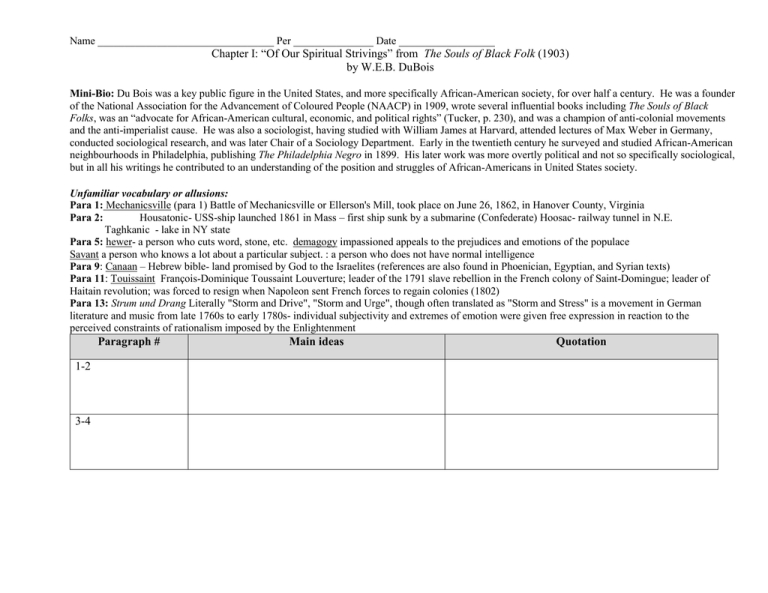
Name _________________________________ Per _______________ Date __________________ Chapter I: “Of Our Spiritual Strivings” from The Souls of Black Folk (1903) by W.E.B. DuBois Mini-Bio: Du Bois was a key public figure in the United States, and more specifically African-American society, for over half a century. He was a founder of the National Association for the Advancement of Coloured People (NAACP) in 1909, wrote several influential books including The Souls of Black Folks, was an “advocate for African-American cultural, economic, and political rights” (Tucker, p. 230), and was a champion of anti-colonial movements and the anti-imperialist cause. He was also a sociologist, having studied with William James at Harvard, attended lectures of Max Weber in Germany, conducted sociological research, and was later Chair of a Sociology Department. Early in the twentieth century he surveyed and studied African-American neighbourhoods in Philadelphia, publishing The Philadelphia Negro in 1899. His later work was more overtly political and not so specifically sociological, but in all his writings he contributed to an understanding of the position and struggles of African-Americans in United States society. Unfamiliar vocabulary or allusions: Para 1: Mechanicsville (para 1) Battle of Mechanicsville or Ellerson's Mill, took place on June 26, 1862, in Hanover County, Virginia Para 2: Housatonic- USS-ship launched 1861 in Mass – first ship sunk by a submarine (Confederate) Hoosac- railway tunnel in N.E. Taghkanic - lake in NY state Para 5: hewer- a person who cuts word, stone, etc. demagogy impassioned appeals to the prejudices and emotions of the populace Savant a person who knows a lot about a particular subject. : a person who does not have normal intelligence Para 9: Canaan – Hebrew bible- land promised by God to the Israelites (references are also found in Phoenician, Egyptian, and Syrian texts) Para 11: Touissaint François-Dominique Toussaint Louverture; leader of the 1791 slave rebellion in the French colony of Saint-Domingue; leader of Haitain revolution; was forced to resign when Napoleon sent French forces to regain colonies (1802) Para 13: Strum und Drang Literally "Storm and Drive", "Storm and Urge", though often translated as "Storm and Stress" is a movement in German literature and music from late 1760s to early 1780s- individual subjectivity and extremes of emotion were given free expression in reaction to the perceived constraints of rationalism imposed by the Enlightenment Paragraph # 1-2 3-4 Main ideas Quotation Name _________________________________ Per _______________ Date __________________ 5 6,7 8,9 10, 11 12 13 14-15 Address the following questions: 1. What is the message about twoness? 2. The poem at the opening of this chapter is by a Welsh-British author- how does the message and the author’s background connect to the rest of the piece?
